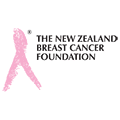Critical Incident Support
A tragedy, assault or threat can prove very difficult for both employees and organisations to deal with. Stratos has researched the most effective and reliable strategies to deal with critical incidents.
Examples of Critical Incidents
A critical incident is one which is:
- likely to cause extreme physical and/or emotional distress to staff
- outside the normal range of experience of the people affected.
The following is a guide only, to the sorts of situations that may cause critical incident stress:
- threat of, or actual, death, injury, abuse or other violence
- suicide of a patient/client or fellow member of staff
- any death or serious harm involving a child or infant
- a series of stressful events that occur in a short time frame
- exposure to particularly gruesome sights, sounds and smells
- a failed rescue attempt
- extended involvement with a particularly stressful event over time
- an accumulation of past stressful experiences
There are also certain critical incidents where critical incident stress is most likely to affect a group of employees. Such situations may include the following:
- a group of staff involved in major disaster rescue and support work
- a work unit criticised in the media
- a hold-up or a staff member taken hostage
- a situation involving distraught relatives or bystanders
- line of duty deaths or injuries
Our critical incident support services
Individual counselling
Ideally individuals who have been seriously affected by a critical incident should be able to access counselling when they feel the need. For some this may be immediately after the incident. For others it may be weeks or even months before they feel the need for support.This can be arranged through the Employee Assistance Programme.
Psychological first aid
We define the support we offer as Psychological First Aid. It is delivered by professionals who have been trained and are experienced in dealing with critical incidents and trauma.
The components of Psychological First Aid are:
- Meeting with the site manager or their representative to clarify any details of the incident, agree on the nature of the support needed and how this will be delivered, find out if there are any individuals about whom the manager is concerned and have a discussion with the manager to check how they are coping themselves.
- A group or individual session in which participation is voluntary. In this session the counsellor willl advise staff on what they can expect during the immediate adjustment phase, provide information helpful to recovery which aims at maximising the individual's normal coping mechanisms, encourage and help staff to identify and use their own resources to manage and recover from a critical incident, provide information/education on managing stress, give basic guidelines on how they can help and support each other, and look out for individuals who show the signs of needing individual support.
- Where the session is individual the counsellor will make an assessment of risk factors such as prior experience of critical incidents, a mental health diagnosis, inadequate social supports, other major issues or exposure to extreme aspects of the incident, which indicate that other on-going
support should be commenced. - A review meeting with the site manager to provide guidance in identifying and supporting at-risk individuals, and encourage and guide them in providing support or staff.
- After the provision of psychological first aid it will be appropriate for follow up contact with the manager to see how things are going and with any individuals about whom there is concern.
Trauma counselling
Where an individual has been seriously affected by a critical incident they can receive counselling from a professional skilled in working with trauma. This is rarely needed immediately. It can be accessed through the Stratos Employee Assistance Programme.
Critical Incident Management Toolkit
This is an on- line tool kit designed to support staff and management following a critical incident. It involves a series of check lists which can be used as a guide following an incident. It also provides information on caring for staff and advice for their support networks.
To arrange support following a critical incident phone 0800 (STRATOS) 787 2867




